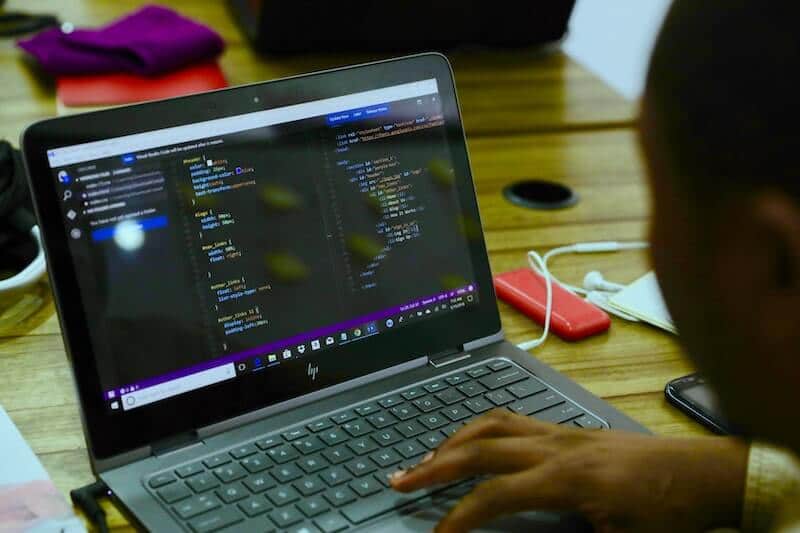Don’t worry, this isn’t one of those clickbaity Inc. or Forbes articles of fifteen fluffy startup skills where you have to scroll all the way down to hear the answer.
Here it is.
The most important skill for startup employees…
Is self-learning.
In this article I’m going to explain why I believe self-learning trumps all other startup skills, and what it actually means.
Why self-learning is the most important startup skill
Startups have two qualities that separate them from most other organizations:
- They move in different, and unpredictable, directions. Often with no notice.
- And, regardless of which direction they’re moving in, they move extremely quickly.
Some people love it, many people find it terrifying, frustrating, exhausting, or overwhelming. It’s not for everybody. The real question is who can not only love it but thrive in this sort of environment.
The pace and chaos of a startup inherently requires its employees to constantly acquire new skills. The game is always changing, so the team is forever learning and adapting. But there is never enough time to “go back to school”. Everything happens in real-time. If you don’t adapt, you end up with whiplash.
There are two huge benefits to working with people who can teach themselves new things quickly.
First, they can work autonomously. A huge benefit at the best of times, but even more so when most of the work is done remotely and even across different timezones. People who can’t work autonomously need to be managed more closely, which can lead to micro-management, and then nobody is happy.
Don’t get me wrong, I’m a huge proponent of mentoring, and that’s not at all mutually exclusive with autonomy. On the contrary. Autonomy and mentoring usually go together and, conversely, a lack of autonomy usually coincides with micro-management rather than the much-preferred hands-off mentoring. People who are constantly learning will figure things out for themselves and get more done with less help.
Second, at large companies, individuals often outgrow the company. So they leave in search of career advancement opportunities. Conversely, at startups, the company often outgrows the individual. That’s because very few people can grow – actually reinvent themselves – at the same pace as a startup. So they get left behind and end up being replaced.
However, people who can learn quickly, and learn independently, can grow with their company. In some cases, they can propel the company to greater heights despite being in completely uncharted territory. They will often be hired as individual contributors with little to no experience in scaling and end up as leaders who have a huge impact on the company’s success.
What does self-learning really mean?
It turns out that self-learning is not really one skill. It’s a way of life that combines several startup skills and a mindset.
The mindset comes first. It starts with a recognition that we don’t really know much and, as a result, we need to constantly evolve and improve. It requires a high degree of self-awareness and a healthy dose of humility. After that, there are some very tangible skills that contribute to a practice of self-learning.

Resourcefulness
Resourcefulness is the ability to figure things out without necessarily asking for help. There is nothing wrong with asking for help, in fact, I encourage it. But self-learners prefer to start their learning journey elsewhere. They Google, they read, they observe, they study, and they absorb. And then they ask for help if required. Being resourceful is a skill and, like all skills, it can be taught, practiced, and improved.
Openness to feedback
Without feedback there is very little learning. Self-learners don’t just listen to feedback and implement it, they actively seek it. Feedback is a gift, so when you get some say thank you. Some feedback is quite difficult to hear. It needs to be constructive and it needs to be delivered in context and in real time. People who ask for feedback will earn trust very quickly and improve faster than their peers.
Tenacity
Taken at face value, it might seem like being tenacious has nothing to do with learning. However, learning rapidly often involves discomfort. Sometimes in order to improve we must face our fears. Cold calling a prospect can be scary. Getting up on stage and presenting can be scary. Designing something the world will see can be scary. But we must do these things in order to improve. We must learn theory and then put it into practice. We will most likely fail, at first, but then we try again. That’s when tenacity is naturally followed by perseverance or, to use the startup cliché, grit. But the first step is all about tenacity. We must will ourselves to venture outside our comfort zone, because that’s where the learning happens.
Self-leaners win
The people in your company who have the skills, or badly want to acquire them, will rarely be defeated. They’ll be there for the entire marathon. They will be right beside you as you try to achieve what feels like an impossible feat. Every day.




















